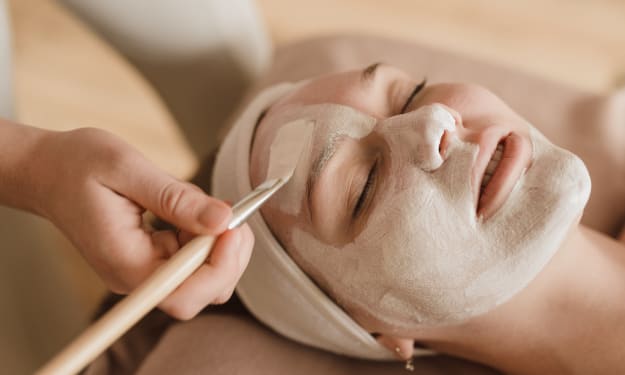Shocking study Makeup brushes are dirtier than a toilet seat!
A new study reveals that unwashed makeup brushes, no matter where they are stored, are much dirtier than you think and can contain a shocking amount of bacteria that might be found in a toilet seat.

The new study was conducted on cosmetics brand Spectrum Collections, and researchers wiped clean and "unclean" makeup brushes at the end of a two-week trial period while testing several common storage methods, including on a bedroom nightstand, in a makeup bag, In brush bags and in the drawer or brush holder in the bathroom.
Comparing the results to toilet seat swabs, the study found that the number of bacteria is either the same or greater in the toilet no matter where the brush is stored.
Makeup artist Carly Musleh told Spectrum Collections that makeup brushes can transfer bacteria, dead skin cells, and oils from the face to the product, which can lead to fungal infections on the skin upon reuse.
The results of the samples revealed that all uncleaned makeup brushes contained potential traces of Escherichia coli, yeast and mold which can lead to fungal infections, while clean makeup brushes contained significantly fewer bacteria.
And while not all bacteria are necessarily harmful, routinely using a dirty brush can lead to acne breakouts or worse.
Carly Musleh added: “Using a dirty brush can increase the risk of causing an imbalance in a healthy microbial community and lead to an increase in the number of disease-causing microbes that can cause outbreaks or more serious problems such as impetigo or staph infections. It is important to clean your makeup brushes regularly.
And the cosmetics company conducted a survey of its customers, in which 40% of them said that they clean their brushes every two weeks, while 20% of them admitted to washing them only every one to three months.
The American Academy of Dermatology recommends brushing every seven to 10 days.
In addition to storing brushes in closed boxes to avoid any bacteria or airborne dust, brushes should be washed in their own detergent or using a gentle shampoo in lukewarm water, then dried with a clean towel and allowed to dry completely.
It's worth noting that previous experiments with soiled cosmetics yielded similar results, with one esthetician recommending regular cleaning of brushes, even after a single use. Source: New York Post
A new health warning for naps
Sometimes it's tempting to take a mid-afternoon nap to help get you through the day.
But in a warning to snoozers, experts have discovered that a 30-minute nap each day may increase the risk of an irregular heartbeat. Atrial fibrillation is a heart condition that causes an irregular and often abnormally fast heartbeat.
It affects more than 40 million people worldwide, and sufferers have five times the risk of stroke compared to their peers.
To see if napping could be linked to the condition, the researchers analyzed data on more than 20,000 people who did not have an irregular heartbeat.
Participants filled out a questionnaire every two years and were categorized into three groups according to the average duration of daily naps - none, less than 30 minutes or 30 minutes and more. Compared to short sleepers during the day, those who nap for 30 minutes or more per day have nearly double the risk of developing atrial fibrillation.
Meanwhile, compared to short naps, the risk wasn't as high for those who avoided naps.
Further analysis revealed that the ideal nap time seemed to be between 15 and 30 minutes, as these people had a 56% lower risk of developing an irregular heartbeat compared to those who napped for half an hour or more.
Dr Diaz Gutierrez, from Juan Ramón Jimenez University Hospital in Spain, said: “Previous studies have indicated that sleep patterns may play a role in the development of atrial fibrillation, but to our knowledge, this was the first study to analyze the relationship between daytime napping and risk. Our study indicates Naps during the day should be limited to less than 30 minutes, and the results indicate that the optimal nap duration is 15 to 30 minutes.
He said there are several possible explanations for the relationship between napping and heart health. For example, a long daytime nap can disrupt the body's internal clock, resulting in shorter nights of sleep, more frequent awakenings during the night, and less physical activity.
Meanwhile, short naps during the day may improve our body clock, lower blood pressure levels, and reduce stress.
He added, "People who suffer from a disturbed night's sleep should avoid relying on naps to catch up." Source: Daily Mail
A Russian surgeon warns of the dangers of losing weight by injecting a drug against diabetes
Recently, the method of losing weight with the help of injections of the drug "Ozempic", intended for the treatment of type 2 diabetes, has gained popularity.
The Russian bariatric surgery was criticized by Dr. Elena Schmidt, this way to get rid of extra pounds and told the newspaper Lenta.ru electronic that the use of the drug without consulting a doctor can lead to serious consequences, including the incidence of cancer.
It is not permissible to take Ozempic in the presence of certain diseases such as pancreatitis, some diagnoses related to the thyroid gland, and chronic heart failure.
The surgery said, "The use of the drug without consulting a doctor and the necessary examination can lead to serious consequences such as thyroid cancer, kidney failure, visual impairment, and acute pancreatitis."
The doctor also indicated that the drug, although it really helps to get rid of excess weight in the short term, will not help maintain weight. After stopping the injections, the rates will return very quickly to what they were previously.
Endocrinologist Arseniy Rusanov described the consequences of rapid weight loss on health. He said that severe weight loss in a short time leads to psychological and emotional disorders, the appearance of wrinkles in the skin, muscle weakness, dehydration, and metabolic disorders due to a lack of important vitamins and minerals, as well as usually menstruation in women.
The Russian TV channel "360" quoted nutritionist Oksana Kovilkina as saying that the optimal rate of weight loss per week is about one kilogram. Source: Komsomolskaya Pravda
About the Creator
News Correct
Information WorldWide MORE INFORMATION






Comments
There are no comments for this story
Be the first to respond and start the conversation.